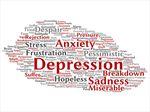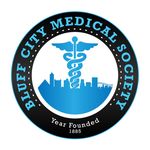THE MEDICAL AND SURGICAL OBSERVER - PRESIDENT'S CORNER - Bluff City Medical Society
←
→
Page content transcription
If your browser does not render page correctly, please read the page content below
SPRING 2021 | VOLUME 1
THE MEDICAL AND SURGICAL
OBSERVER
The Quarterly Newsletter of the Bluff City Medical Society
OTHER STORIES
PRESIDENT'S CORNER INSIDE THIS
ISSUE:
The past year has certainly been one like no other. As local health
professionals, we’ve continued to care for our patients, our
communities, our families, and ourselves while battling COVID-19. I Student's
am encouraged by your dedication and commitment to this calling
Perspective - P.2
of medicine. I encourage our Memphis metropolitan community to
continue to adhere to the safety recommendations of masking,
social distancing, and frequent hand washing. COVID-19 and
While we are in a better position than we were in the spring of Depression - P.3
2020, we are nowhere near the end of this pandemic. I encourage
you all to take the COVID-19 vaccine and if you have taken the
vaccine, please encourage your family, friends, and colleagues to COVID-19 and
get vaccinated as well. Please know that we, the Bluff City Medical Internal Medicine -
Society, will continue to serve you by bringing you relevant medical P.4
information and resources that you can use as you navigate life
during this ongoing global pandemic.
COVID &
LaTonya B. Washington, MD, MBA Otolaryngology - P.5
President
Bluff City Medical SocietySPRING 2021 | VOLUME 1
THE NEED FOR MORE PHYSICIANS OF COLOR
A Student's Perspective
Before coming to medical school, I taught high school for three years. During my first year as a teacher, when
speaking to one of my senior students about her career options after high school, she expressed that she never
thought that being a doctor was something within her reach because she had never seen one who looked like
her. This interaction was heartbreaking for me and illustrated the importance of representation. Now, as a
mdical student, I continually hear how important it is to find mentors, not only for guidance through the
medical curriculum, but also for residency application letters of recommendation. Unfortunately, as Black and
Hispanic phsicians make up only 11% of the active physician population according to the AAMC, it is
disheartening to not see many who I confidently trust to guide me through the unique challenges of navigating
the medical field as a Black woman. This dearth of diverse faculty is also to the detriment of non-minority
medical students. Being taught by a gamut of professors from different backgrounds, both in pre-clinical and
clinical years, will help student learners open their perspectives and equip them to provide quality, unbiased
care to patients from backgrounds different than theirs.
Even though I am only a second year medical student, my family often asks me for healthcare advice, the most
recent of which being whether or not to take the COVID-19 vaccination. Because I am their family, they trust my
opinion and heed it. Historically, minority populations have been mistreated by the healthcare profession,
leading to the development of mistrust between the two. Physicians of color will likely have an additional level
of understanding and empathy in regards to having experienced racism both generally and at the hands of the
healthcare system, allowing them to serve as better advocates for their patients. There is value in having the
physician population mirror the treatment population because it can allow patients who may otherwise be
skeptical of medical help to connect with physicians who share a similar background with them, further
encouraging them to seek care. We need to have diverse physicians in every specialty so that patients see their
sisters, brothers, aunts, and cousins in those providing them care because it could be the difference between
receiving a life saving vaccination or a deadly infection.
Natasha Tillett, M2
UTHSC College of Medicine
Class of 2023
SNMA Pre-Professional ChairSPRING 2021 | VOLUME 1
COVID-19 AND DEPRESSION
As we continue to live through the pandemic and the isolation of not being
able to travel freely, hang out as usual, and go out without wearing a mask,
our moods are slowly changing and some youth are starting to experience
issues with anxiety, depression, and other mental health issues. Initially
working from home and doing school virtually were exciting and different,
embraced by many and accepted as our “temporary” norm. Now that we
have lived this way for 14 months, pediatric rates of depression have
increased significantly. The Center for
Disease Control and Prevention reports that the number of emergency room
visits for depression and other mental health issues has increased by 24 % in . How are children diagnosed?
children aged 5 - 11 and 31 % for children aged 12 -17. The symptoms have to be present for at least 2
weeks and the child needs to be evaluated by a
Signs of depression in children: mental health professional. The evaluation includes
Crankiness or anger an interview with the patient (depending on the
Continuous feelings of sadness and hopelessness age) and the parents. Please bring along any
Social withdrawal information that will be beneficial to the interview
Being more sensitive to rejection such as documentation from teachers or other
Changes in appetite, either increased or decreased school personnel who have interacted with the
Changes in sleep (sleeplessness or excessive sleep) patient. There are questionnaires that can assist
Vocal outbursts or crying with the diagnosis, although they aren’t specific
Trouble concentrating diagnostic tools. HISTORY IS VERY IMPORTANT, SO
Fatigue and lower energy BE HONEST!!
Physical complaints (such as
stomachaches/headaches) that don’t respond to Treatment options vary and the best option(s)
treatment need to be determined by the mental health
Trouble during events and activities at home or professional and the family. Therapy is always
with friends, in school, important.
during extracurricular activities, and with hobbies
or interests
Feelings of worthlessness or guilt
Impaired thinking or concentration
Thoughts of death or suicide
Girls are more likely to attempt suicide, where boys are
more likely to actually kill themselves when they make
the attempt. Children who live in homes with a history
of violence, abuse (physical, mental, sexual), and drug
addiction are at greater risk for suicide. Ways parents can help the child(ren):
Watch your child(ren) closely.
Ask daily “how are you doing?” and give them time to express
themselves honestly.
Take your child(ren) out to the park, zoo, date, etc. so that they can
get out of the house, especially if they are in virtual school.
Turn the TV off of the continuous news networks and watch
something fun.
If they are in virtual school, make sure they have a designated area
for school and the rest of the house is for fun/relaxation.
Make sure they take a break when school is over.
Make sure your child(ren) has an outlet to express themselves
Check out the openly and honestly.
Listen to your child(ren) when they express themselves openly and
feature photo of honestly.
the month on p.5 Don’t judge your child(ren) or discount what they say or how they
feel.
Love on your child(ren).
Bianca J Sweeten MD, FAAP
Midtown Pediatrics of MemphisSPRING 2021 | VOLUME 1
COVID & OTOLARYNGOLOGY
The COVID pandemic has posed a detrimental risk on all healthcare
personnel over the past year. Otolaryngologists were noted to be at
significant risk due to the increased exposure to the upper airway where
SARS-CoV2 was found in higher concentrations - the nasopharynx and
nasal cavity. Examination of these areas typically requires close patient
contact, with increased aerosolization secondary to cough and sneezing.
As overwhelming evidence emerged from overseas that
otolaryngologists were at high risk of contracting the virus while
performing upper airway procedures without proper Personnel Protective
Equipment (PPE), availability of such PPE in the US became scarce. Care
was suggested to be limited to time-sensitive and emergent issues.
Challenges surfaced on how best to address airway procedures such as
tracheostomies and dilations as well as urgent head and neck cancer
resections due to associated exposure risks and limitations secondary to
hospital utilization.
Expectantly, new data from the American Medical Association shows that otolaryngology has had a 28% drop in Medicare physician spending
in the first half of 2020 – the second highest drop of all specialties. We are still recuperating as we adapt to the new normal, embracing the
need for PPE for in-office procedures, COVID testing and the like. Our assessment of common symptoms such as anosmia, dyspnea and
hoarseness has evolved to include post-COVID syndrome on our list of differential diagnosis with research still pending on how best to
manage these issues. As a specialty, we are navigating the system with pandemic related changes that have permanently changed the field
of otolaryngology for years to come.
Sandra Stinnett, MD
Assistant Professor
Director, Division of Laryngology
Dept. of Otolaryngology - Head & Neck Surgery
University of Tennessee Health Science Center
Interested in advertising with us? Contact
bcmspres@gmail.com for more info
COVID & INTERNAL MEDICINE
Life at the best of times is a patchwork of varying experiences, interwoven
paths and evolving relationships. In order to serve one’s patient population, it is
imperative that one has a keen sense of when to pivot away from the beaten path.
Oftentimes on reviewing objective data, the physician may walk into a patient
encounter with a few plausible theories on the clinical picture at hand. The ability
to abort the original spiel in favor of holding one’s thoughts after noting the set of
the patient’s shoulders; the glassy sheen in the eyes; or the sense that something
important is awry - is an art that has been further fine-tuned by necessity, during
this pandemic. Rare is the recollection of a time in which, simultaneously, dread,
despair and impending doom have occupied real estate in the minds of so many.
Uncertainty adds a morbid fixation on the unknown, paired with the mundane,
requires the physician to be adroit in recognizing the subtle signs of depression.
Not since September 11, 2001 had we needed, on such a broad scale, to employ
empathy as well as measured tones for reassurance. With all but the eyes
uncovered, patients needed to feel the sincerity; the validation of fears; the
assurance that someone cared to listen to their grief and distress. All this while
gently reminding them of the need to monitor blood pressures and blood sugars.
Of the benefits of regular exercise. Of the need to pursue needed health screens.
All this while praying fervently as the unseen, stealthy virus wreaked havoc on our
world.
Michelle Kitson, MD
Methodist Medical GroupSPRING, 2021 | VOLUME 1
FEATURE PHOTO OF THE MONTH
Check presentation for $5,200.00 raised by Pro Duffers South for The Sickle
Cell Foundation of Tennessee.
BLUFF CITY MEDICAL SOCIETY
@BLUFFCITYMED
@BLUFFCITYMED
The following persons are in the photo: -Larry D. Colbert, President/Pro Duffers South
-Reginald French, President/The Sickle Cell Foundation of Tennessee
-Dr. William Terrell, Board of Directors/The Sickle Cell Foundation of Tennessee
-Dr. Jesse McGee, Pro Duffers South
VISIT OUT WEBSITE OUR CONTACT INFORMATION:
HTTPS://BLUFFCITYMEDICALSOCIETY.ORG/ P.O. BOX 17924
MEMPHIS, TN 38187
(901) 300-0958
BLUFFCITYMED20@GMAIL.COMYou can also read



























































